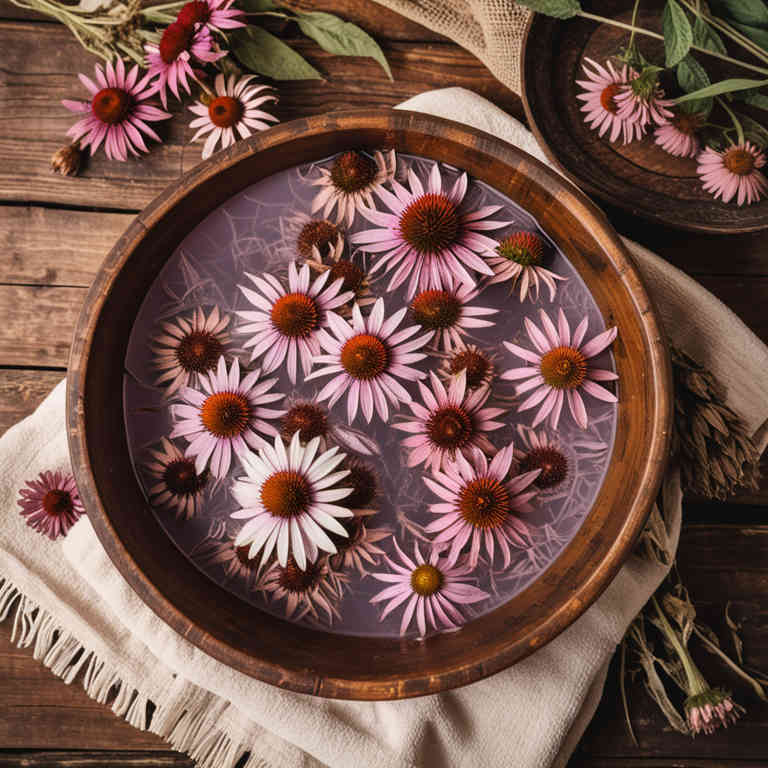Echinacea purpurea bath for medicinal use

Echinacea purpurea bath is a traditional herbal preparation made by infusing the dried roots and flowers of the echinacea plant into water.
This bath is used in herbalism to support the immune system and promote overall wellness. It is believed to have anti-inflammatory and antimicrobial properties that can help reduce skin irritation and boost the body's natural defenses. The preparation is often used as a natural remedy for colds, flu, and minor skin conditions.
It is typically taken as a warm bath or added to bathwater for its therapeutic benefits.
Uses
Echinacea purpurea bath has been used to support immune health and alleviate symptoms of colds and respiratory infections for centuries.
Historically, Native American tribes utilized echinacea in various forms, including teas and poultices, to treat wounds, infections, and inflammatory conditions. In traditional herbal medicine, it was also believed to have antiseptic and anti-inflammatory properties that could promote healing. Modern research suggests that echinacea may help reduce the duration and severity of colds when used early in their onset.
Today, echinacea baths are sometimes recommended as a complementary therapy to boost immunity and soothe skin irritations.
Benefits
Echinacea purpurea bath has health benefits such as boosting the immune system, reducing inflammation, and promoting skin health.
This herbal preparation is known for its antimicrobial and anti-inflammatory properties, which can help alleviate symptoms of colds, flu, and respiratory infections. Taking an Echinacea bath may also support the body's natural defenses by enhancing white blood cell activity. Additionally, it can soothe skin irritations and may help in the healing process of minor wounds.
Regular use of this bath can contribute to overall wellness and immune support.
Constituents
Echinacea purpurea bath active constituents include alkamides, caffeic acid derivatives, polysaccharides, and flavonoids.
These compounds are believed to support immune function by stimulating the production of white blood cells and enhancing the body's natural defenses. The alkamides may help reduce inflammation and promote a sense of well-being. Polysaccharides are known to modulate immune responses, while flavonoids contribute to antioxidant activity.
This herbal preparation is often used to support respiratory health and alleviate symptoms of colds or seasonal allergies.
Preparation
To make Echinacea purpurea bath, start by boiling 1 cup of fresh or dried Echinacea purpurea leaves in 4 cups of water for 15 minutes.
Strain the mixture to remove the plant material, then add the liquid to a tub of warm water. Let the bath soak for 15 to 30 minutes to allow the beneficial compounds to be absorbed through the skin. This bath is believed to support immune function and may help reduce inflammation.
It is especially popular during cold and flu season for its soothing and potentially immune-boosting properties.
Side Effects
Echinacea purpurea bath may lead to allergic reactions in individuals sensitive to plants in the daisy family.
It can also cause skin irritation or dryness due to the herbal compounds present in the bath. Some people may experience gastrointestinal discomfort if the bath is not properly diluted. Overuse of echinacea baths might weaken the immune system in certain cases.
It is important to consult a healthcare professional before using this preparation, especially for those with existing health conditions or allergies.